We need a loss and damage report from the IPCC

The global activities to address climate change is divided into two major institutions and activities under the United Nations. The first is the Intergovernmental Panel on Climate Change (IPCC), jointly run by the World Meteorological Organization (WMO) and United Nations Environment Programme (UNEP), which deals with the latest scientific evidence on different aspects of climate change. The IPCC consists of representatives from every member country of the UN, mostly from national meteorological agencies, and it meets in a plenary session each year to discuss the next series of scientific reports to be commissioned.
The IPCC recently completed the sixth assessment cycle of climate change with a series of scientific reports, and the next plenary meeting is due later this month in Nairobi, Kenya, to select the new chair and Working Group heads for the seventh assessment report.
The second institution is the United Nations Framework Convention on Climate Change (UNFCCC), where all governments are members and which takes policy decisions for actions to tackle climate change at an annual Conference of Parties (COP). The UNFCCC was set up in response to the first IPCC reports, which alerted global policymakers about the dangers of human-induced climate change. The Kyoto Protocol at COP3 was in response to the second assessment report (AR2) of the IPCC, and the Marrakesh Accords at COP7 was in response to AR3.
Hence, the UNFCCC considers each assessment report from the IPCC in its decision-making process, and asks the IPCC for advice on the latest science on climate change.
While the main IPCC assessments consist of separate reports – from Working Group 1 on the climate modelling, Working Group 2 on vulnerability, impacts and adaptation, and Working Group 3 on responses, plus a final synthesis report based on all three Working Group reports. This involves hundreds of scientists from all the countries, from many different disciplines, who assess the scientific literature and prepare draft reports for very thorough reviews, which is why each cycle of assessment takes around five years.
Such a special report on loss and damage could be delivered within another two years to capture the significant amount of scientific research that is now being carried out and published on different aspects of tackling climate change. These include economic and non-economic losses and damages, and rapid onset events such as cyclones, floods, and heatwaves as well as slow onset events such as sea-level rise and droughts.
However, there is also a possibility for the IPCC plenary session to commission a special report on a single topic, which can be delivered in two years only. Such special reports included one on the 1.5-degree-Celsius temperature rise, which was proposed by the developing countries in the last IPCC cycle. The special report on 1.5 degrees was extremely influential in getting decisions in the UNFCCC process, most importantly to get the target included in the Paris Agreement in 2015.
As the IPCC starts to plan its seventh assessment cycle, it's time for the developing countries to call for a special report on loss and damage from human-induced climate change. As last year's decision to set up funding arrangements to address losses and damages from climate change has set up a Transitional Committee to come with recommendations by COP28, which is due in December, and developed further in the next few years, it is extremely important for the IPCC to provide the UNFCCC decision-makers with the latest scientific data on losses and damages.
Such a special report on loss and damage could be delivered within another two years to capture the significant amount of scientific research that is now being carried out and published on different aspects of tackling climate change. These include economic and non-economic losses and damages, and rapid onset events such as cyclones, floods, and heatwaves as well as slow onset events such as sea-level rise and droughts.
The topic of loss and damage from human-induced climate change is still little understood and quite complicated, so a credible scientific report from the IPCC will play a significant role in advancing the understanding of this issue by both decision-makers and the general public.
It is, therefore, important that the delegates from Bangladesh and all the other Least Developed Countries (LDCs) as well as other groups attending the upcoming IPCC plenary session in July in Nairobi support the inclusion of a special report on loss and damage in the upcoming AR7 IPCC cycle.
Dr Saleemul Huq is director at the International Centre for Climate Change and Development (ICCCAD) and professor at Independent University, Bangladesh (IUB).

 For all latest news, follow The Daily Star's Google News channel.
For all latest news, follow The Daily Star's Google News channel. 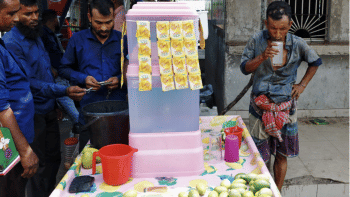
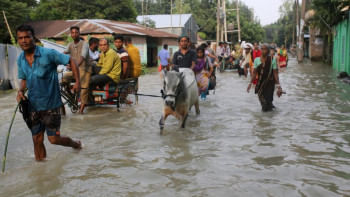



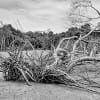
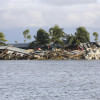
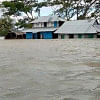
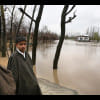


Comments